An activist tried to take down trafficking on Pornhub. Did she do more harm than good?

Support truly
independent journalism
Our mission is to deliver unbiased, fact-based reporting that holds power to account and exposes the truth.
Whether $5 or $50, every contribution counts.
Support us to deliver journalism without an agenda.

Over the last four years, anti-trafficking activist Laila Mickelwait, has earned two very contradictory reputations: as the person who led an unlikely, wildly successful movement to challenge Pornhub on behalf of victims of trafficking and abuse, and the person who smuggled conspiratorial, anti-porn hysteria into the mainstream, at the expense of fellow efforts to make the web safer.
Her new book, Takedown: Inside the Fight to Shut Down Pornhub for Abuse, Rape, and Sex Trafficking, out now via Thesis, captures the ins and outs of her #Traffickinghub campaign against the site.
At the beginning of 2020, according to Mickelwait, founder of the non-profit Justice Defense Fund, going up against Pornhub and its then-parent company MindGeek was like challenging Goliath.
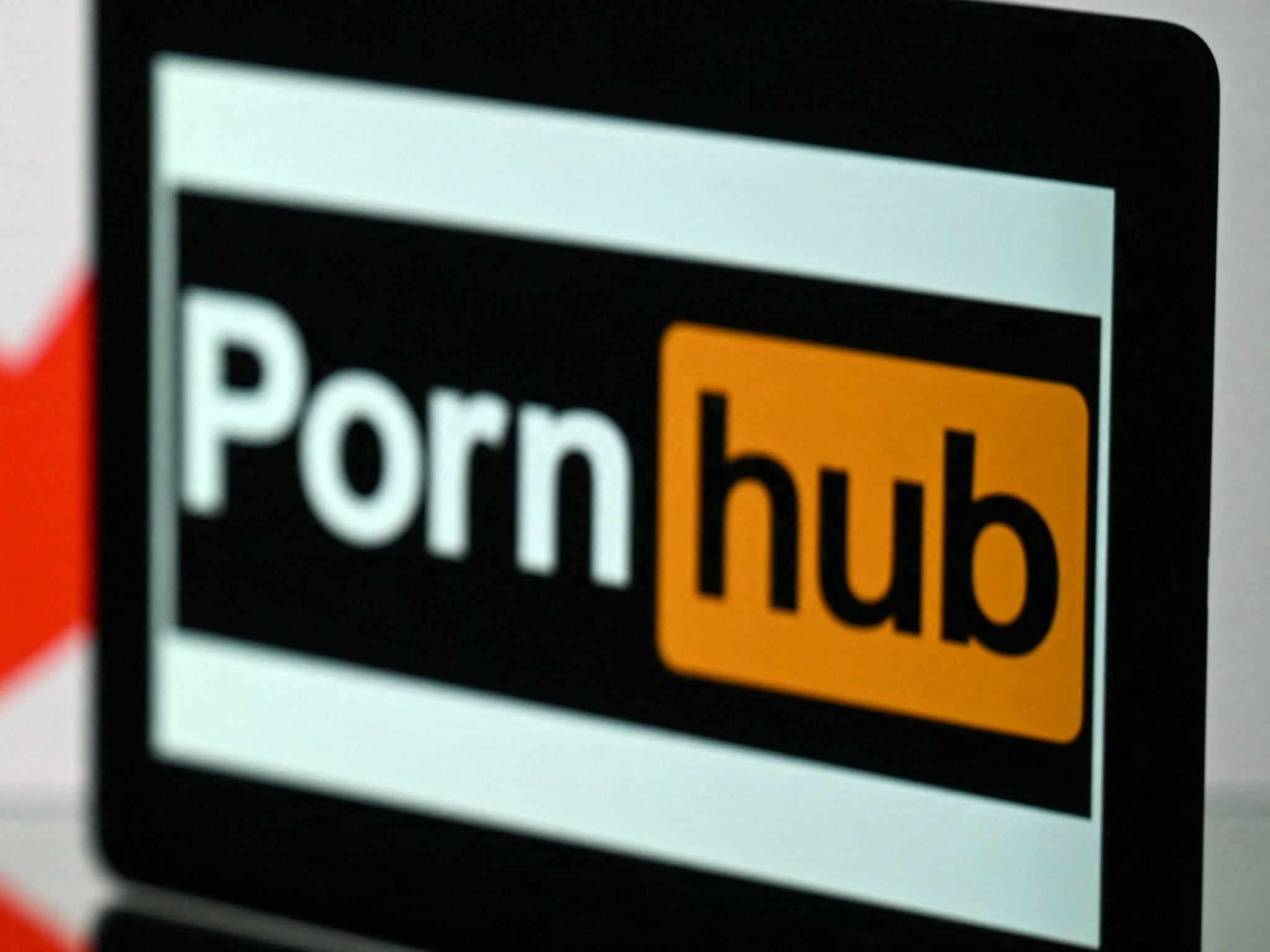
At the time, it was not merely one of the largest porn companies on the Internet, hosting nearly 14m videos, but one of the most visited sites online, period, claiming billions of visits each month across its various platforms, which mixed professionally made content and user-uploaded videos.
“When all of this began so many people told me that MindGeek was too big to fall, but maybe it was too big to aim at and miss,” she writes in Takedown.
Despite its massive presence online, Mickelwait argued in a February 2020 petition, which quickly went viral, the site was a content Wild West, full of videos rooted in abuse. She cited the case of a 15-year-old whose family hadn’t seen her in over a year, only for them to find her after being tipped off that nearly 60 sexually explicit videos of her with an adult man were being shared on platforms including Pornhub.
Testing the site for herself, Mickelwait said all she needed to upload was an email — no government ID, no verified identity, a process that took less than 10 minutes. (MindGeek said at the time that until it was reviewed by their human moderation team, the video would only have been visible to Mickelwait.) The activist argued the whole site should be shuttered.
The upload system for the video site seemed willfully blind to the ease of spreading abusive material on the Internet, Dani Pinter, senior legal counsel at the National Center on Sexual Exploitation, which co-sponsored the Traffickinghub movement, told The Independent.
“That could be from your phone, that could be something you stole, anything. There was no age verification, identity verification, consent verification,” she said. “You can imagine what a tool that was for predators.”
Pornhub says this representation of their policies was the first of many factually inaccurate depictions of their work that came from the movement, a campaign they describe as causing deep harm to the adult industry and the thousands of performers who make their livelihoods from it.
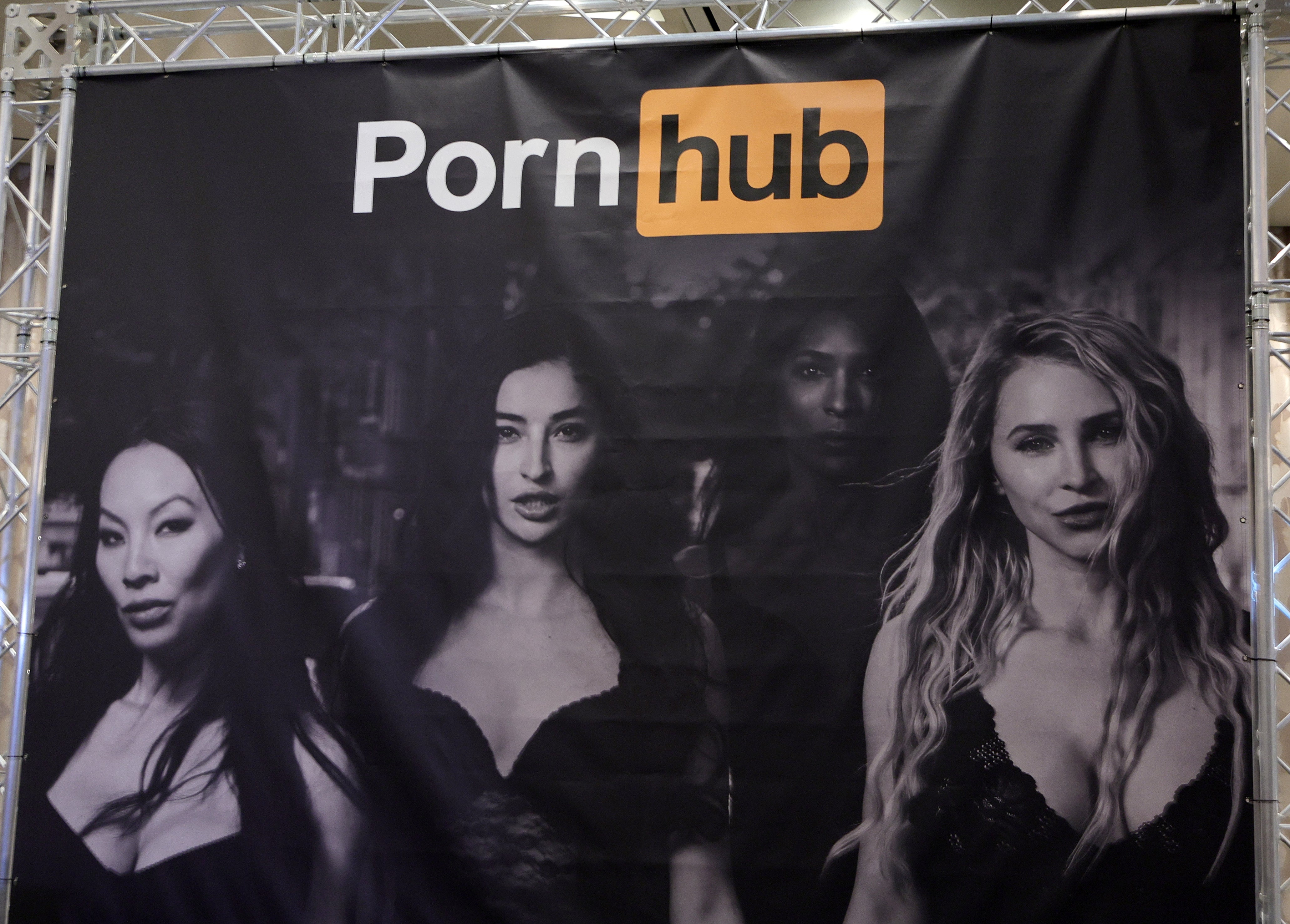
(Mickelwait did not respond to multiple requests for comment from The Independent.)
At the time of the petition, executives at Aylo, Pornhub’s current parent company, told The Independent, video uploads were fed through a bevy of verification systems, including automated systems to detect harmful content and human moderators who manually reviewed every single upload. Verified uploaders were required to have ID and proof of consent for their fellow participants on file and produce them during Pornhub’s regular account audit process.
“That’s the way the law is structured,” attorney Solomon Friedman, vice-president of compliance at Ethical Capital Partners, Pornhub’s owner, describing the federal 2257 statute for producers of pornography.
Mickelwait, in her petition, described Pornhub as a “super-predator site,” but data suggests there was far more harmful content on mainstream social media platforms.
According to the National Center for Missing and Exploited Children, Facebook reported over 20m instances of child sexual exploitative content in 2020 to the watchdog group, versus 13,229 across the multiple websites owned by Pornhub’s parent company.
Still, Mickelwait said she found plenty to be concerned about the more she dug into Pornhub.
In Takedown, she recounts a 2020 conversation with a former moderator at the site, who described being overworked and watching over 1,000 videos a day, sometimes fast-forwarding them with no audio or making snap-judgements, by looks alone, to decide whether a video featured adult performers engaging in consensual acts.
“They wouldn’t really care,” she quotes the moderator as saying, in regards to borderline videos. “They would just pass it and it would be okay. It’s more money for the site anyway.”
Friedman says Mickelwait did not reach out to the company for fact-checking purposes or comment and declared that her book isn’t “a serious journalistic endeavor.”
Other former employees at Pornhub and victims who had unwanted videos appear on the site described sluggish reviews on flagged videos, and a process that would shut down problematic videos but not remove their uploaders.
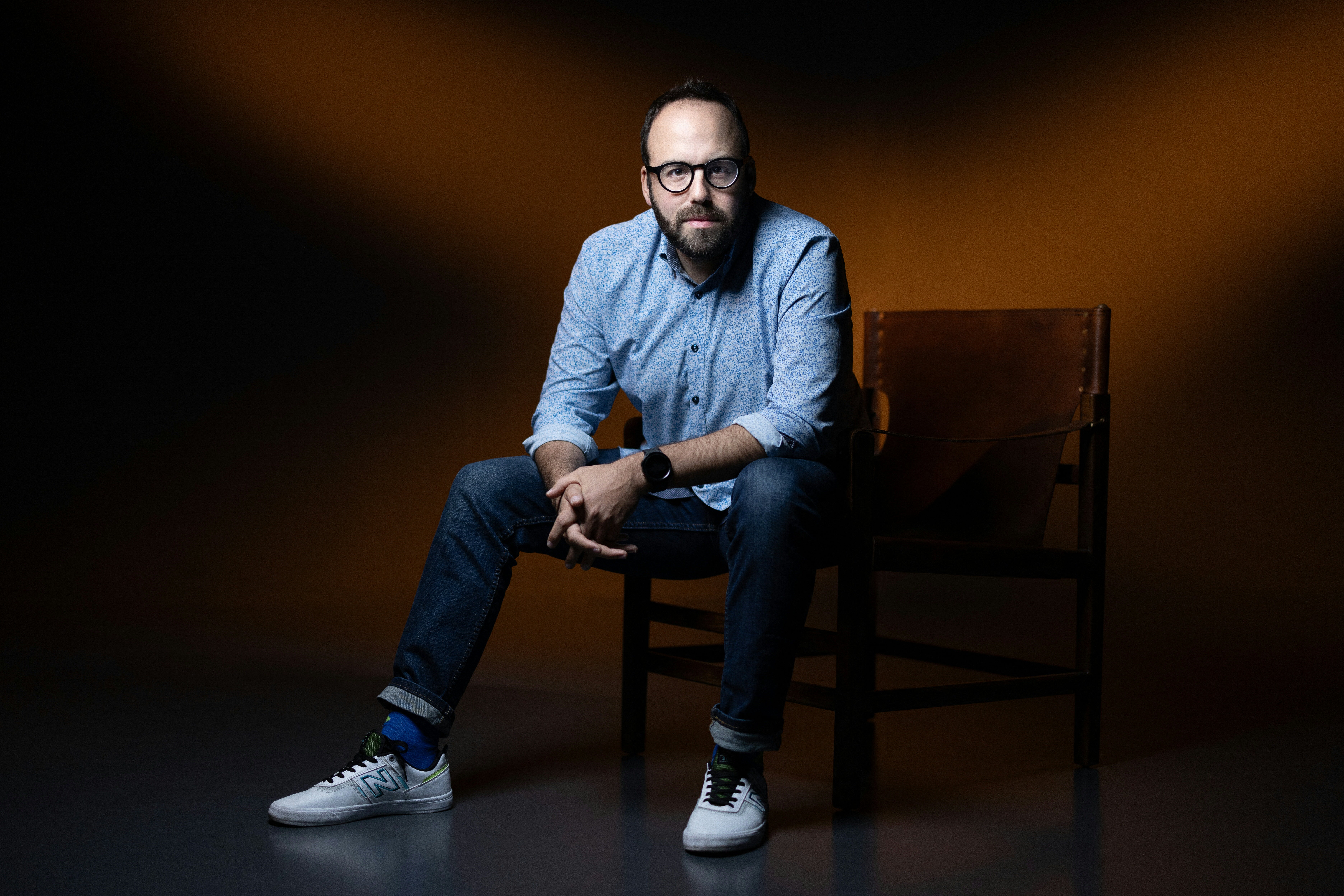
A woman named Tina told The New Yorker that requests to remove explicit videos posted by an abusive ex-boyfriend in 2019 to the site usually took days to be removed, and would reappear hours later.
One former employee of the site, who left in 2020,told Rolling Stone that in a meeting with senior leadership, they seemed not to know about FOSTA-SESTA, a major US anti-trafficking law that passed in 2018.
Mickelwait’s campaign, which landed years into the #MeToo movement and its focus on gendered harassment and violence, quickly struck a nerve. A major exposé in The New York Times in 2020 and a successive piece inThe New Yorker both heavily featured her work, bringing Traffickinghub to an even larger national audience.
That same year, Pornhub’s then-parent company MindGeek was accused in multiple lawsuits of continuing to do business with a production company called Girls Do Porn, who scores of women say lied to them about how explicit videos of them would be used, and failed to protect their identities as promised, as well as coercing them to appear in videos with tactics like barring them from leaving rooms until they made videos. Pornhub continued to work with the Girls Do Porn, even after it had been accused of abuse and sued. (Friedman says Girls Do Porn “defrauded both the platform and the women who were shooting those videos.”)
In December of 2020, shortly after the Times piece ran, Mastercard and Visa barred their cards from being used on the site, decisions that remain in effect.
By the end of that year, Pornhub decided to ban uploads from its contingent of unverified users, suspending a majority of its video library, some 10m videos, until their uploaders all went through the verification process, and blocking the ability of viewers to download most videos.
Following the suspension, the site required all uploaders to go through a third-party ID verification process, providing a government ID card, then doing a live likeness test on camera.
The site argued these changes, far from being defensive, actually put Pornhub ahead of most mainstream content platforms.
“Every piece of Pornhub content is from verified uploaders, a requirement that platforms like Facebook, Instagram, TikTok, YouTube, Snapchat and Twitter have yet to institute,” the site wrote in a statement.
Still, by then, the public mood around Pornhub had decidedly turned. Executives at the site, which maintained a large office in Montreal, were grilled in 2021 in Canadian parliament, and Pornhub’s then co-owner Feras Antoon’s mansion was burned to the ground. The company’s owners began pondering whether to sell it.
Far right groups, which often tied their anti-porn stance to racist, homophobic, white supremacist, and antisemitic conspiracies, began posting violent threats about specific Pornhub executives.
On Twitter, Mickelwait entertained the idea that maybe Pornhub created these threatening posts, as a kind of false-flag operation to discredit her work. Aylo also shared a screenshot with The Independent of a post it said Mickelwait shared then deleted on X, describing her husband as a “trained sniper who can consistently hit a target 1360 yards away.”
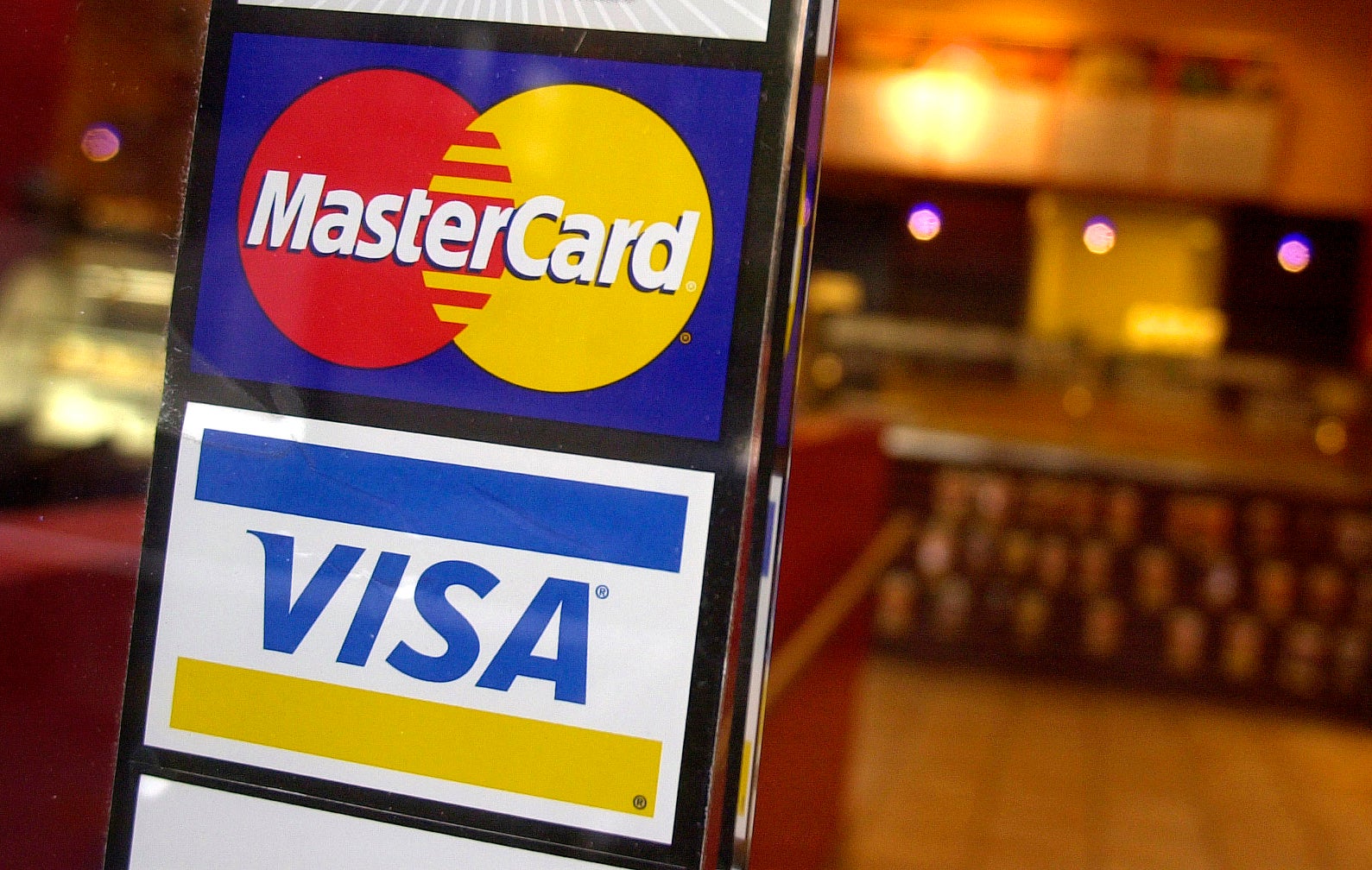
“You make comments like that, which are intended to provoke and inflame. There’s no surprise that it leads to death threats and intimidation,” Friedman said.
This heated atmosphere converged with the ideas swirling around QAnon, the right-wing conspiracy delusion that political and corporate elites were engaged in sex trafficking, and a Republican Party in the US increasingly turning to anti-LGBTQ+ paranoia and branding opponents as “groomers.”
In Takedown, though, Mickelwait says she has a reasonable platform and has been unfairly vilified by platforms like Pornhub as an anti-obscenity crusader. She says she’s not against porn so long as it’s legal and consensual, but it’s not hard to see why, a few years in, some in the adult industry distrusted her as a reliable partner in this effort.
NCOSE, the organization that co-sponsored Traffickinghub, was previously known as Morality in Media, and used to rail against sex shops, push abstinence education, and once boycotted Disney for offering partner benefits to gay couples. The group’s president, Patrick Trueman, has served at multiple far-right organizations designated as anti-LGBTQ+ hate groups by the Southern Poverty Law Center.
Laila founded Traffickinghub while on staff at Exodus Cry, an anti-trafficking organization that describes porn as a public health crisis. Its founder once called homosexuality an “an unspeakable offense to God.” One of its tax filings described a mission of “abolishing sex trafficking and the commercial sex industry,” which would seem to include porn.
Helen Taylor, vice president of impact at Exodus Cry, told The Independent in an email that the group seeks to neither demonize LGBTQ+ people nor end legal pornography, and that it works to defend queer people, who are often singled out as victims of sexual abuse.
“Exodus Cry has no campaign to bring down the porn industry,” she said. “We focus on identifying instances of sexual exploitation in the porn industry and calling for change, recognizing that Big Porn needs regulation.”
The questions over Mickelwait’s associations are likely to persist. The 2022 990 tax form for her new group, Justice Defense Fund, filed in late 2023, has the names of three of its four main officers “withheld for security reasons,” and lists only one contributor, their name also “restricted.”
These partnerships, as well as Mickelwait’s penchant for describing Pornhub in terms like calling it a “terrorist” organization, made her efforts seem counter-productive to some, painting the industry as irredeemable and evil rather than imperfect.
“Sex work and sex trafficking are two different things,” adult performer Asa Akira says in Money Shot, a 2023 documentary about Pornhub.
Others argued that by provoking anger against porn companies, and driving away mainstream payment providers, thousands of legal performers saw major threats to their livelihoods — and to their lives, driving those in the lower tiers of the industry into less well-regulated, or even illegal, parts of the adult entertainment world.
“As a porn performer, these were far and away the most stressful years of my career,” performer Cherie Deville wrote in Rolling Stone. “People doxxed me. I had to migrate from one platform to another as company after company banned porn stars. Some of my friends lost control of their bank accounts — all of this as we followed every law on the books.”
To Mike Stabile, director of public policy at the adult industry group Free Speech Coalition, the Traffickinghub campaign had the effect both of falsely painting legal porn providers as insidious child traffickers who welcomed abusive material, and of taking the focus off of social media sites with far worse problems.
“For me and for FSC, it didn’t feel like it was being done in good faith. It felt like it was being done as a means to an end by two groups who were largely opposed to the existence of pornography in general,” he told The Independent.
And he names Mickelwait specifically.
“She painted the industry as an industry that is fine with child abuse, that is fine with revenge porn, and that has never been the case.”
In March of 2023, a private equity group calling itself Ethical Capital Partners bought MindGeek, likely for hundreds of millions of dollars, and renamed it Aylo, promising to continue improving Pornhub’s moderation policies and act as a leader in the wider tech and adult industries, requiring ID verification for all uploaders and performers before videos go live, and working with more than 70 nonprofits to combat underage and non-consensual content.
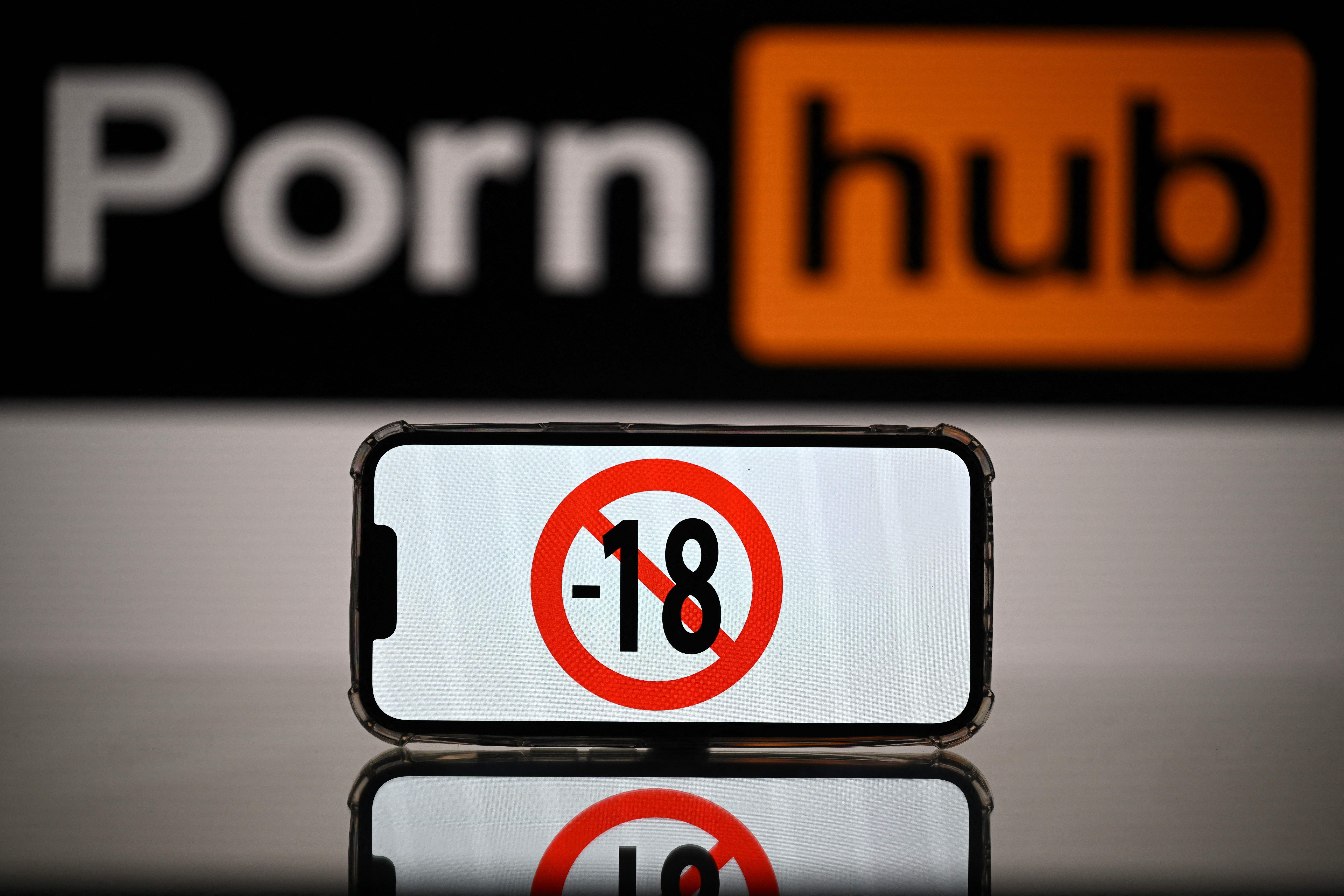
By the end of that year, in a deferred prosecution agreement stemming from the Girls Do Porn cases, Aylo pleaded not guilty but acknowledged in federal court in New York that it received proceeds from porn content depicting victims of sex trafficking, and agreed to pay damages to women who said they were forced to appear in videos.
Prosecutors alleged the company got numerous messages from victims of the trafficking between 2016 and 2019, and was aware of a 2017 lawsuit against the production company, but continued to do business with it, not completely removing its videos until late 2020.
Pornhub has also been assigned a government-appointed monitor who will oversee its protocols for screening videos for the next three years, at which point, if the company remains in compliance, the charges will be fully dropped.
Despite the public battle over Pornhub, mainstream watchdog groups like Crime Stoppers Interational and the Internet Watch Foundation continue to partner with the platform.
The company may be turning a new leaf, but Pinter, the lawyer from the National Center on Sexual Exploitation, argues the Traffickinghub movement has scored major victories and opened the public’s eyes about the company. She said that it’s striking Pornhub took so long to implement the sorts of policies she felt should’ve been there from the beginning.
“It took that much pressure, they were that resistant to doing what would be the common sense first step,” she said. “That’s a huge victory that we got there.”
For his part, when asked if Pornhub had made any mistakes in previous years, Friedman said the company’s past ownership should’ve been more outspoken about explaining how the platform worked.
“When there is a void of information, that void gets filled with misinformation,” he said.
The Pornhub wars are far from over though.
As of this month, an estimated 300 plaintiffs across multiple lawsuits allege Pornhub knowingly profited from videos of their abuse, according to an analysis from Business Insider. Pinter is working on multiple class actions, in California and South Carolina, from victims who said harmful videos of them ended up on the site. Pornhub’s parent company says it doesn’t comment on active litigation.
The US Supreme Court is set to consider a challenge from FSC to a Texas law, part of a growing national wave of such laws, requiring visitors to porn sites to display health warnings and upload an ID to prove they are 18. The industry group, along with outfits like the ACLU, argues the law violates privacy rights.
Pornhub has disabled its site in Texas in protest of the law, which it argues will have adverse effects as the new requirements might push online visitors to poorly regulated sites with fewer safeguards for viewers and performers alike.
The debate over what to do about online pornography — part speech, part child-protection, part online economics, part morality— is as complicated and charged as ever.
“In Texas, companies cannot get away with showing porn to children,” Texas attorney general Ken Paxton said earlier this year. “If they don’t want to comply, good riddance.”
It’s hard to miss that Texas officials, when describing Pornhub, have sounded an awful lot like Mickelwait, for better or worse.




